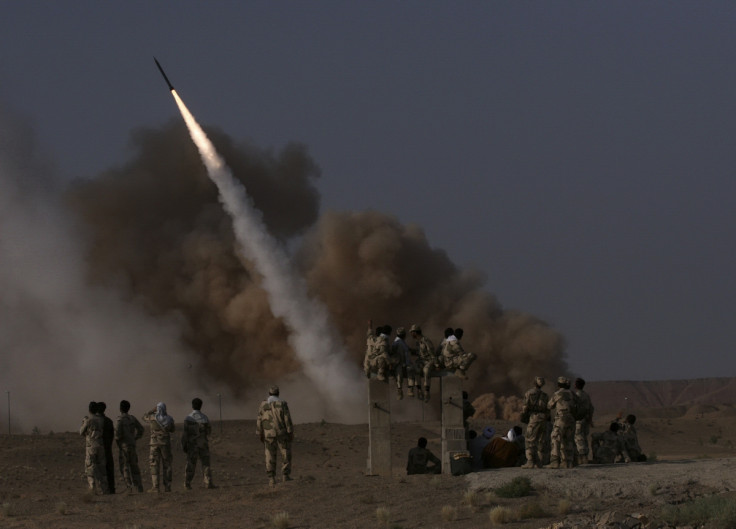Iranian Revolutionary Guard fires long-range ballistic missiles raising spectre of economic sanctions

Iran has announced the launching of a number of long-range ballistic missiles causing the US to suggest it may raise the issue with the United Nations Security Council. The US says it doesn't believe the missile tests are in contravention of Iran's nuclear deal but a French diplomatic source appeared to contradict that assessment.
Missiles were tested by Iran's Revolutionary Guards Corps (IRGC) and announced on state TV on Tuesday (8 March). Footage showed what was claimed to be a Qiam-1 missile being launched from a fortified bunker at night and hitting a target 700 km away. According to IRGC Brigadier General Amir Ali Hajizadeh several other missiles were launched, though as yet there has been no independent verification of the statement.
Under the terms of the nuclear proliferation treaty signed in 2015 Iran is banned from developing missiles capable of carrying a nuclear payload, but Iran insists testing of conventional missiles is essential for its defence. "Our main enemies are imposing new sanctions on Iran to weaken our missile capabilities," said Hajizadeh, "But they should know that the children of the Iranian nation in the Revolutionary Guards and other armed forces refuse to bow to their excessive demands."
Speaking as part of his daily briefing in Washington, White House spokesman Josh Earnest said it did not appear that Iran had violated the nuclear deal. The issue may still be raised with the United Nations Security Council, said Earnest. However some Republicans are furious about the tests and a senior French diplomatic source appeared to contradict the official US position, saying that the missile tests may have breached the terms of the deal.
"We are checking this information. Iran's ballistic weapons program constitutes a source of preoccupation," said the diplomat, quoted by Reuters. "The design by Iran of missiles capable of carrying nuclear weapons would contravene UN Security Council resolution 2231 which calls on Iran to abstain from all activity in this field."
There is a possibility that economic sanctions could again be imposed on Iran. However the country's deputy foreign minister Abbas Araqchi warned against such a move. "If other parties decide, they could easily violate the deal," said Araqchi. "However, they know this will come with costs."
© Copyright IBTimes 2025. All rights reserved.






















